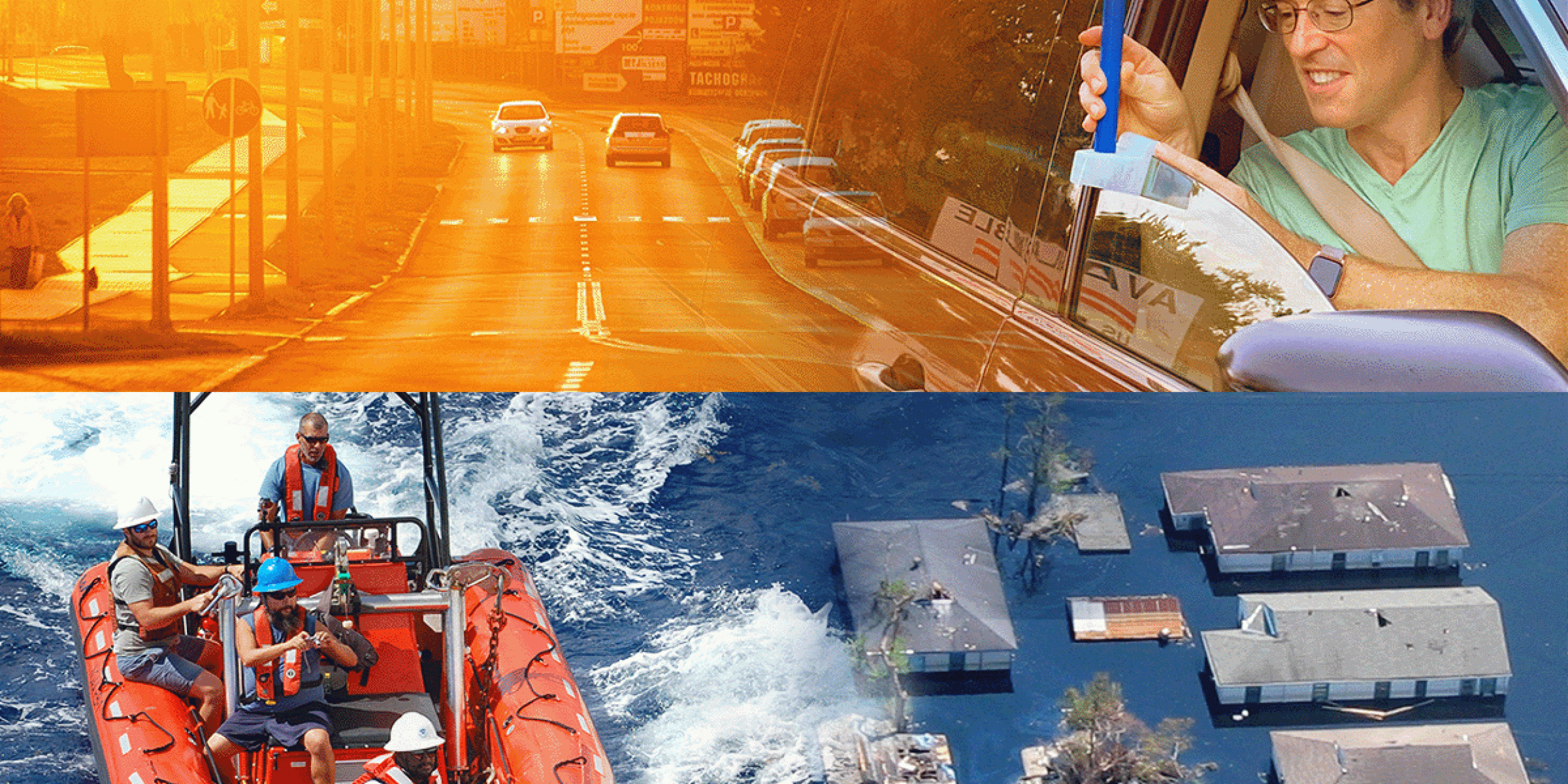Published: October 12, 2021

View Award Details
Advancing Climate Adaptation and Coastal Community Resilience
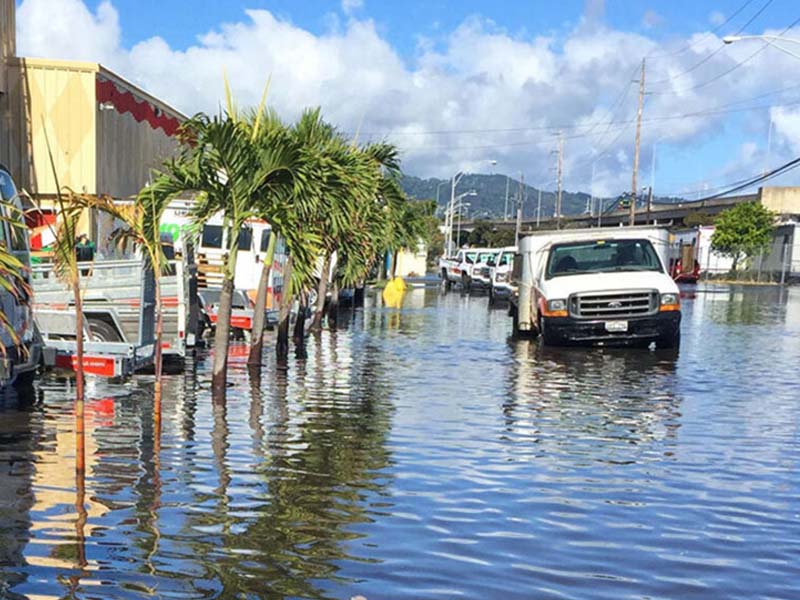

Emissions, Air Quality, and Heat in Urban Areas


CPO’s Atmospheric Chemistry, Carbon Cycle, and Climate (AC4) program is annoEarth-System-Science-and-Modelinguncing 10 new 3-year projects and 1 new 2-year project in Fiscal Year 2021 that aim to increase our understanding of emissions and chemical transformation in the urban atmosphere. The competitively selected projects total $5.48M in grants.
Atmospheric Impacts Due to Changes in Anthropogenic Activity During the COVID-19 Pandemic


CPO’s Atmospheric Chemistry, Carbon Cycle, and Climate (AC4) program and Climate Observations and Monitoring (COM) program are announcing 8 new 2-year projects in Fiscal Year 2021 that aim to leverage the natural experiment created by the significant reduction of emissions during the COVID-19 pandemic to understand how anthropogenic activities affect local and regional air quality. The competitively selected projects total $3.18 million grant awards.
CPO and NOAA partners sign two cooperative agreements with the University Corporation for Atmospheric Research
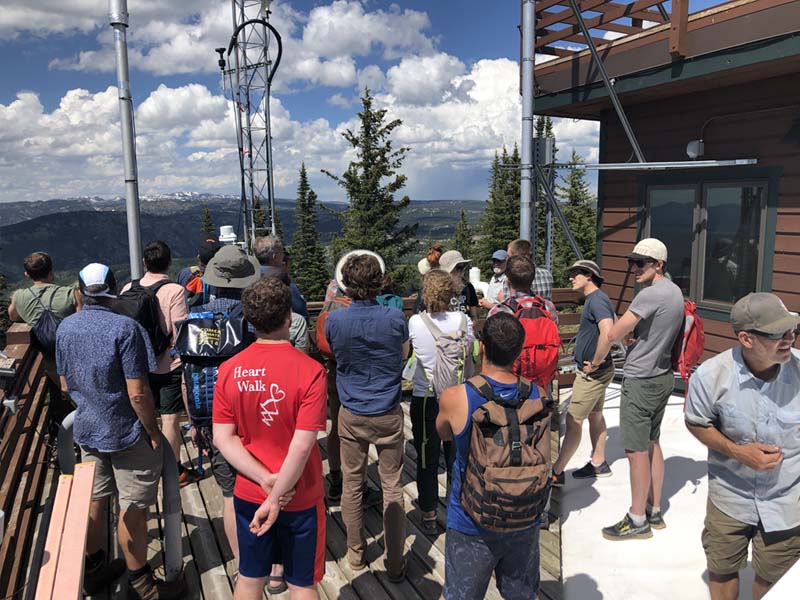

CPO is announcing two new 5-year cooperative agreements in Fiscal Year 2021 with the University Corporation for Atmospheric Research (UCAR) that aim to support research, programs, projects, and other activities related to NOAA’s mission. The cooperative agreements will primarily support these activities through collaborations among scientists and professionals in areas of mutual interest across the full spectrum of NOAA sciences. Awarded through the NOAA Science Collaboration Program (NSCP) and NOAA Climate Adaptation and Mitigation Program (CAMP), supported and managed by CPO, the competitively selected projects total $96,029,464.
Collaborative planning activities in the Southeast and the U.S. Caribbean
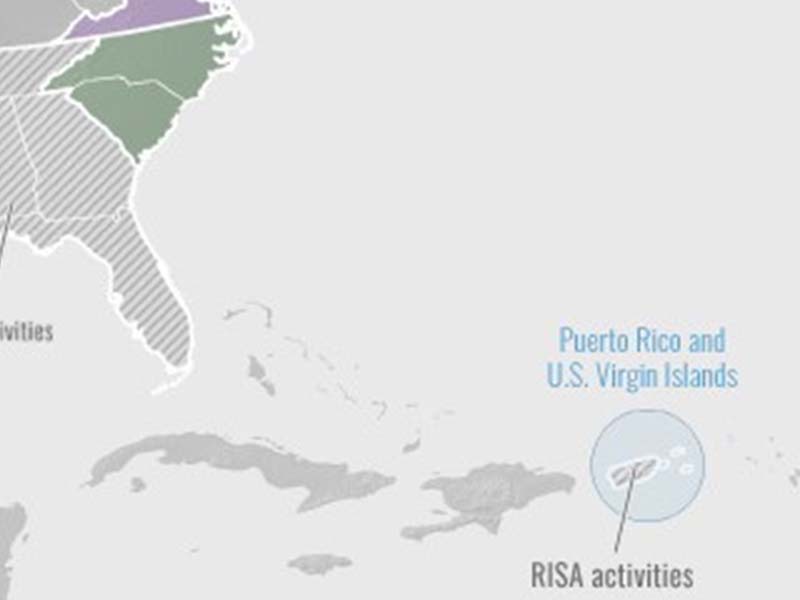

CPO’s Regional Integrated Sciences and Assessments (RISA) program is announcing 4 new 1-year projects in Fiscal Year 2021 that aim to conduct multi-stakeholder workshops or other innovative planning activities in the Southeast and U.S. Caribbean. These activities will identify and examine important issues in the regions, related to social and economic dimensions of climate variability and change. The competitively selected projects total $399,922 in cooperative agreements.
Regional RISA Teams competition for the Northeast, MidAtlantic, Intermountain West, Carolinas, Great Lakes, Alaska, Pacific Islands, South Central, and Pacific Northwest
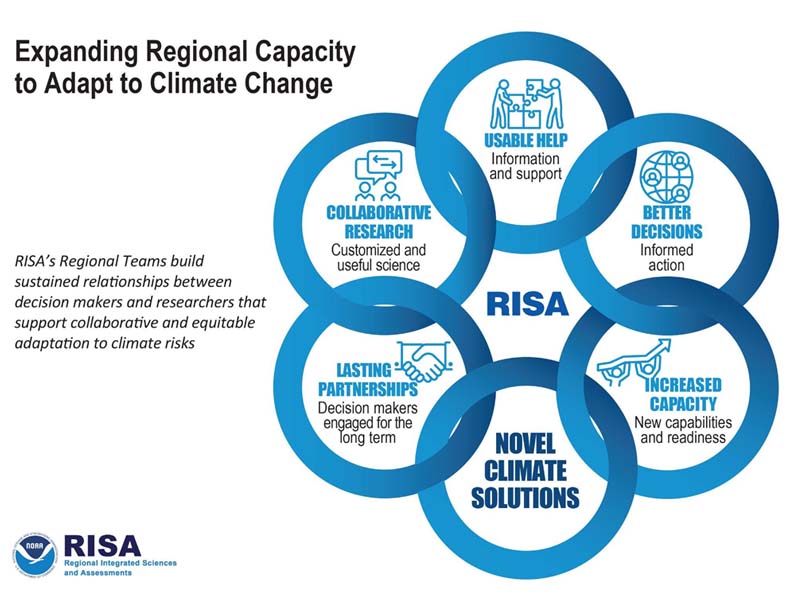

CPO’s Regional Integrated Sciences and Assessments (RISA) program is announcing 9 new 5-year RISA teams in Fiscal Year 2021 that aim to conduct research and engagement in each of the regions mentioned above. RISA teams focus on multiple societal issues relevant to their region, and develop a set of interconnected projects related to these issues.
Process-Oriented Diagnostics for Climate Model Improvement and Applications
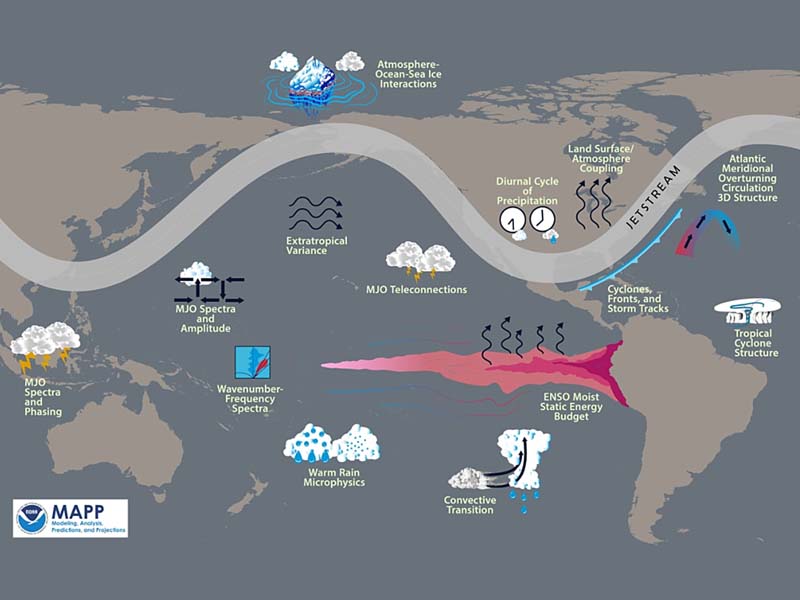

CPO’s Modeling, Analysis, Predictions, and Projections (MAPP) program is announcing 6 new 3-year projects in Fiscal Year 2021 that aim to address key issues in the representation of Earth System processes to improve climate models. The competitively-selected projects total $4,671,288, including $3,621,288 in grants and $1,050,000 in other awards.
COM, CVP and GOMO – Innovative Ocean Dataset/Product Analysis and Development for support of the NOAA Observing and Climate Modeling Communities
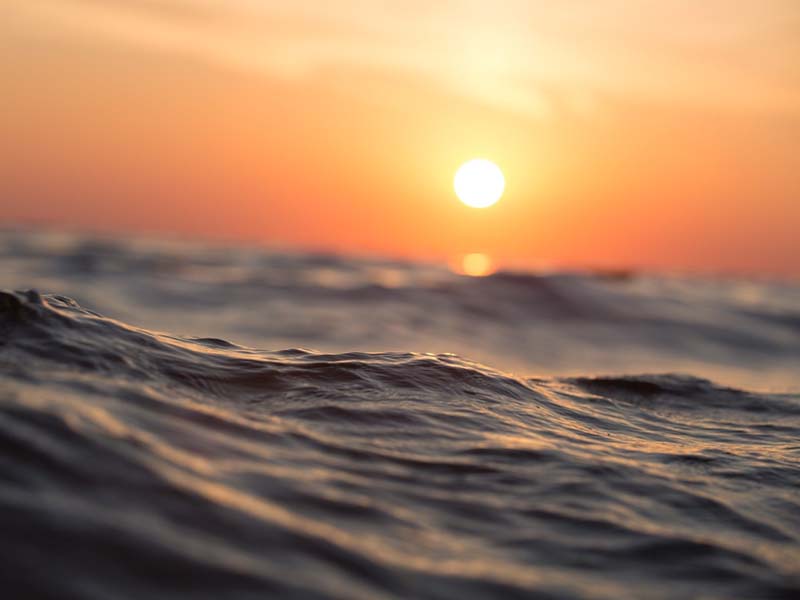

CPO’s Climate Observations and Monitoring (COM) program and Climate Variability and Predictability (CVP) program, in partnership with NOAA’s Global Ocean Monitoring and Observing (GOMO) program, are announcing 12 new three-year projects in Fiscal Year 2021 that aim to increase the use and value of ocean observations, advance our understanding of climate variability and change, and enhance NOAA’s ability to model and predict the Earth System. The competitively selected 12 projects total $5.16 Million, including $3.5M in grants and $1.66M in other awards.
Read the announcement
NOAA’s Climate Program Office (CPO) announced today a total award amount of $171 million, the highest five-year investment in the program’s history, to support 72 innovative and impactful projects that will improve our nation’s resilience at a critical time in the fight against the climate crisis.
“These grants will spur the knowledge and innovation that is at the heart of President Biden’s executive order to tackle the climate challenge,” said U.S. Secretary of Commerce Gina M. Raimondo. “The Commerce Department and NOAA are committed to bold action and these new awards are critical economic and research investments that will improve the health and security of communities across America.”
Over the next one to five years, universities, other research institutions, and agency partners across the United States, Puerto Rico, and the U.S. Virgin Islands, will work on these newly-funded projects in close partnership with NOAA laboratories and research centers. The funding will be distributed over the life of the projects and future-year funding is conditional on appropriations.
This year’s funding is supporting a broad spectrum of climate research areas that include advancing environmental justice; improvements in climate models; advances in the use and understanding of ocean observations to enhance NOAA’s climate modeling; understanding how the COVID-19 pandemic affected local and regional air quality; advances in resilience planning for future flooding impacts and other coastal stressors; and studying how emissions and chemical reactions impact air quality and climate in the urban atmosphere.
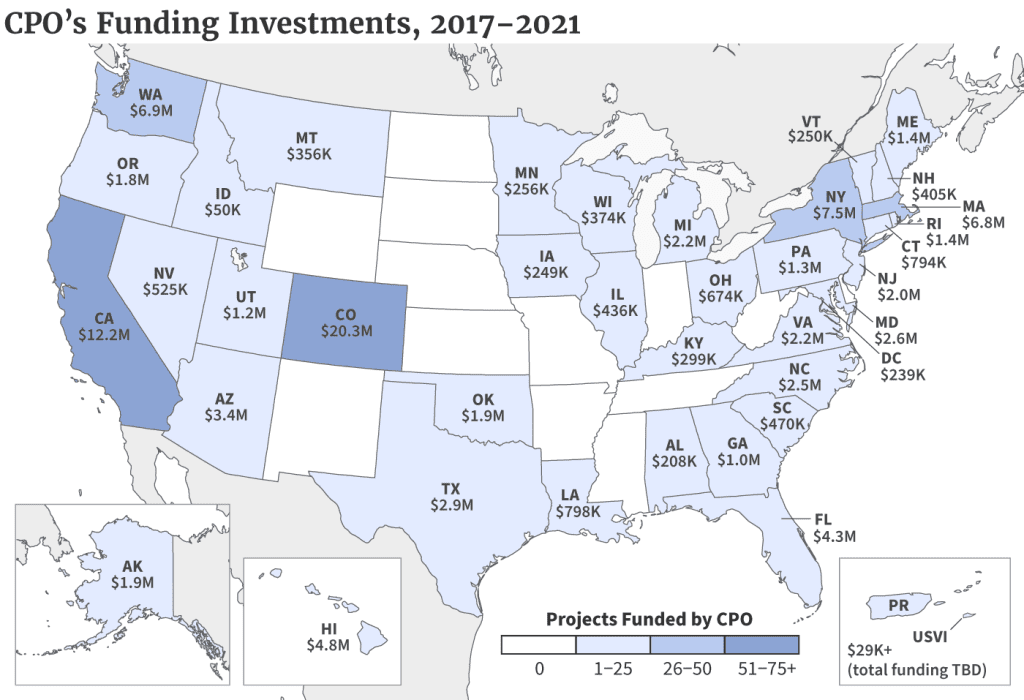

“We have a narrow window of time to avoid costly, deadly, and irreversible future climate impacts,” said Rick Spinrad, Ph.D., NOAA administrator. “These new NOAA investments are essential to improve understanding of how to mitigate these impacts and bolster community resilience to climate change.”
CPO’s peer-reviewed competitive funding process ensures that proposals chosen to receive funding meet high standards of quality and equity, and that research inside and outside of NOAA is supported. These projects conducted by external partners expand the reach of NOAA’s mission and the frontiers of scientific inquiry.
“CPO’s foundational science helps us anticipate climate risks while CPO’s community resilience activities help us respond to those risks,” said Wayne Higgins, Ph.D., director of NOAA’s Climate Program Office.
CPO’s annual awards process is uniquely positioned to evolve with changing climate challenges. This year, the awards address several new and urgent priorities. For example, CPO’s Regional Integrated Sciences and Assessments (RISA) program is expanding its capacity to build climate adaptation and resilience through collaboration with communities across America. For FY21, RISA is funding engagement activities in two new geographic areas: the U.S. Caribbean (U.S. Virgin Islands and Puerto Rico) and the Southeast region (Florida, Georgia, and Alabama).
Some of the new funding will also support the NOAA Climate and Global Change Postdoctoral Fellowship Program, which trains the next generation of leading climate researchers who will serve the nation and support NOAA’s mission.
Additionally, in response to greater demand for NOAA’s climate adaptation and resilience strategies, CPO’s Climate and Societal Interactions division has launched a new Adaptation Science research program to advance the knowledge, methods, and frameworks necessary to move society toward widespread climate adaptation and resilience with economic and societal benefits.


